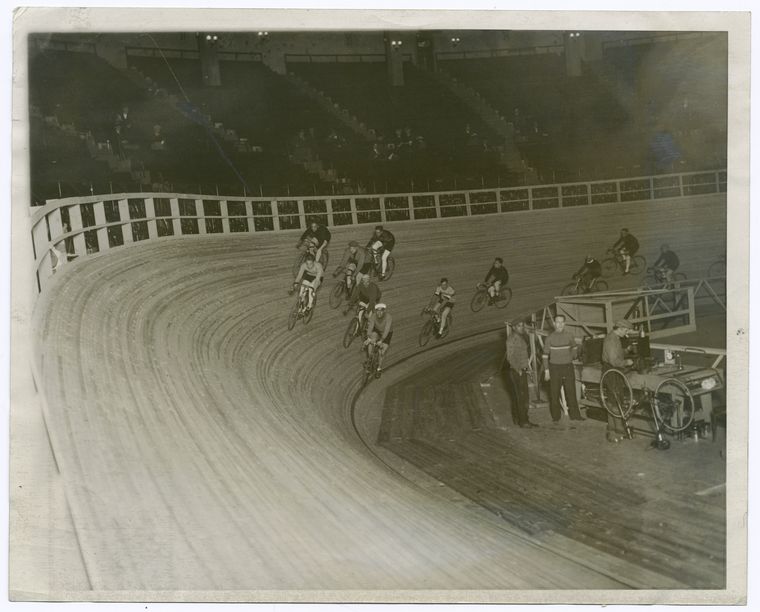
America’s first six-day was held at Madison Square Garden. Photo from Bike Barings.
At modern six-day races, track cyclists perform impressive physical feats racing a variety of events such as keirins, madisons, and sprints over the course of nearly a week. Any cyclist who’s raced back to back days can attest to the extra challenge of racing with tired legs. But even with six consecutive days of racing, today’s six-day events pale compared to the turn-of-the-20th century races from which they evolved. Those early races were quite literally six days long, running 146 consecutive hours, pushing racers to their absolute breaking point (and often beyond).
Last week, writing for The Classical, Rob Mitchum took an in-depth look at the history of American six-day racing in the wake of 1930s six-day racer Erwin “Erv†Pesek’s death.
Mitchum writes:
In early days, a single cyclist would ride for as many hours as his body and mind would allow, prompting a delirium by the end that drew the scorn of an 1897 New York Times editorial—“An athletic contest in which the participants ‘go queer’ in their heads, and strain their powers until their faces become hideous with the tortures that rack them, is not sport, it is brutality.â€
The growing outcry against the dangers of a solo six-day race prompted New York City and Chicago laws in 1899 forbidding cyclists from racing for more than 12 hours a day. To circumvent those rules, promoters paired up riders into two-man teams, at least one of whom was required to be on the track at all times while the other man rested or ate in small, square huts set up on the inside of the bowl. The winners were determined by the number of laps completed by each team at the end of the week, combined with a separate tally of points accumulated in two-mile sprints during peak times to spice up the proceedings.
Erv Pesek reflecting on his sport:
“As far as I’m concerned this is the roughest sport and the toughest sport because you had to train so hard,†Pesek said at his Cicero home in 2008. “When you’re riding against foreigners up there, they’re out to get you and you’re out to get them. You can do anything you want if you don’t get caught.â€
Read the whole thing here.
